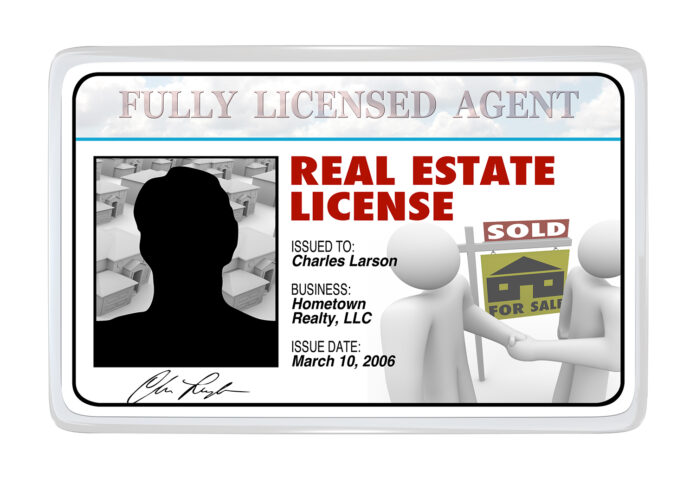
There are multiple ways to enter the real estate industry. Most real estate agents work in residential real estate, selling homes to families or helping families buy homes from other families. The commercial side of real estate is a little different.
Rather than assisting clients with the purchase or sale of residential homes, you’ll be working with clients looking to buy or sell properties zoned for commercial use, like businesses.
If you’re interested in entering the industry from this angle, here’s what you need to know.
Why Become a Commercial Real Estate Agent?
If you’re contemplating becoming a commercial real estate agent, choosing this path may come with some distinct advantages. If you’re looking to maximize your salary and develop ongoing business relationships, commercial real estate may be a better fit for you than residential real estate.
Commissions May Be Greater
Commercial properties often have much higher asking prices than the average residential property, which might substantially increase your commission on a sale. Although commercial real estate deals often take longer to close than residential deals, the notable increase in commission may be worth the wait.
Just like with residential real estate sales, commercial sales commissions are also based on negotiations. Negotiations can be unpredictable. Changes in these numbers can influence not only your paycheck but whether or not the sale goes through.
There May Be Less Competition
Most people enter the real estate industry through the path of residential real estate. If there are a lot of residential real estate agents in your local area, becoming a commercial real estate agent may make it easier for you to find clients.
There’s a Greater Potential for Ongoing Business
Most people buy one property and live in it for decades. They may be unlikely to call you again, or, at least, not very soon. Commercial real estate opens up new opportunities.
If a business you’ve worked with decides to expand, they may call you again when they need to buy more property. They may even want your input or advice when selecting a new location.
What Is the Difference Between a Commercial and a Traditional Real Estate License?
In some states, a residential real estate license and a commercial real estate license are two separate things. In other states, anyone with a real estate license can work with any type of property, regardless of its designation.
In states where a commercial real estate license is necessary, this license gives real estate agents the power to work with businesses and professionals to purchase property. The only way to know if you need a commercial real estate license or if you can use a regular real estate license is to check with your local real estate authority.
What Kind of Properties Qualify as Commercial Real Estate?
Generally, any property that is designated for something other than giving at least one person a place to own and live in will be considered a commercial property.
- Professional offices
- Retail outlets
- Lots zoned as commercial
- Large shopping centers
- Multifamily rental buildings
- Office space
- Warehouses and factories
- Restaurants and foodservice
- Hotels and hospitality buildings
Do You Need a Degree To Be a Commercial Real Estate Agent?
You do not need a degree to become a real estate agent of any kind. The mandatory education comes in the form of special courses that must be passed before a real estate license can be granted by the state you live in.
Some states have more intensive courses than others. Your education will always be less than 200 total hours, and it will be real estate specific.
Some commercial real estate agents choose to get degrees that will help them with their careers. A degree in economics, finance, accounting, business administration, or accounting might help you become a better real estate agent.
If you can afford to attend college and you can make the time commitment, you can choose to get a degree. If you can’t or if you feel like you don’t need it, no worries.
What Are the Requirements for a Commercial Real Estate License?
In most cases, obtaining a commercial real estate license isn’t much different from obtaining a residential real estate license. In some states, one license serves both purposes. If your state doesn’t require special licensing to sell commercial properties, you can follow the conventional path for obtaining a license.
Take Your Real Estate Course
Every state has different requirements for real estate licensing courses. These courses are typically between 60 and 180 hours of course material. Your local real estate board will be able to tell you which course you need to take for commercial real estate if your state offers different courses.
After you complete your course, your course instructor will point you in the right direction for taking your exams. Some people choose to take practice exams or exam study courses to help them prepare.
If you took thorough notes throughout your course and feel you’ve mastered the material, independent study, or asking a friend or family member to quiz you, you may be sufficiently prepared.
Take Your State Real Estate Exam
The real estate exam is actually two exams, and you need to pass both in order to obtain your license. The first exam will relate to local real estate law, and the second exam will relate to national real estate law.
Both exams need to be passed independently. If you miss the mark on one exam and hit the other one out of the park, they don’t average out. You’ll need a passing grade on each exam.
If you fail your exam the first time, you’ll be able to schedule a retake. If you need a little extra help, it may be wise to take practice exams or seek additional tutoring before attempting the exam a second time. If you fail multiple times, you may be required to partially retake the real estate course.
Meet Additional Requirements
Many states require real estate agents to undergo background checks and be formally fingerprinted. This formality helps to keep the public safe. Real estate agents often go in and out of people’s homes or businesses, and they often have keys to the property.
This additional safety measure keeps the public at ease. They’ll know their real estate agent is a trustworthy person.
Apply For Your License
Once you’ve passed your exam and met all of your requirements, you’re finally able to officially apply for your real estate license. You can’t work as a real estate agent until you’ve received a physical copy of your license.
Each state will tell you what information you need to send in. Your information will be reviewed and approved. After approval, your license will be mailed to you. The moment you have your license, you can go to work for a real estate broker and begin working as a commercial real estate agent.
How To Be Successful in Commercial Real Estate
There’s a lot of overlap in successful practices for both residential and commercial real estate agents. No matter what side of the industry you work in, you need to be knowledgeable and attentive. You also need to network with people who can help to keep clients flowing to you.
Build Strong Relationships
When you’re a residential real estate agent, building strong relationships is important for lead generation. When you’re a commercial real estate agent, building strong relationships is crucial for maintaining business with the same client. Many people who purchase commercial real estate will need more than one building. This is especially true if they expand their offerings or open up a new location.
Be Patient and Knowledgeable
The best way to be a successful real estate agent is to be available and knowledgeable. People want answers to their questions. They want to know that you’ll always be available to answer the phone and that you have current information available to them.
This is especially important with commercial clients, as they’re typically juggling a multitude of deals and contracts at once. They need to know they can trust you to hold up your end of the deal.
Befriend Attorneys
Businesses frequently work with attorneys. They often need special licenses and approval, and they like to have a right-hand helper to review their contracts. If you befriend attorneys, you’re more likely to get referrals. When their client mentions purchasing or leasing a new property, you’ll be the first name that comes to mind.
Training Your Brain To Win in Commercial Real Estate
Getting your license is only the beginning. Successful real estate agents need to master numerous skills, from lead generation to constantly evolving market trends. Harris Real Estate University offers coaching programs to real estate agents of all varieties who want to dominate their local competition and maximize their productivity.
Contact us to learn how a Harris certified coach can help you reach your full potential in the real estate industry.
Sources
Intro to Commercial Real Estate | NAIOP
How to Choose the Right Business Location | Business News Daily
New To Commercial Real Estate? 10 Major Differences From Residential Property Investments | Forbes























